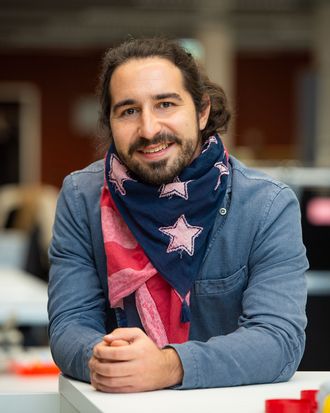Full professor and head of the department for Quantum Information and Computation at Johannes Kepler University Linz, Austria
Associate professor (tenured) for quantum computing, Department of Computer Science, Johannes Kepler University Linz, Austria
Assistant professor (tenure track) for quantum computing, Department of Computer Science, Johannes Kepler University Linz, Austria
Postdoctoral researcher, California Institute of Technology, United States
Postdoctoral researcher, Department of Physics, Free University of Berlin, Germany
Postdoctoral researcher, Institute for Theoretical Physics, University of Cologne, Germany
Doctoral Studies (continuation), Institute for Theoretical Physics, University of Cologne, Germany
Doctoral Studies, Institute of Physics, University of Freiburg Germany
Master Studies in Physics, Department of Physics, ETH Zürich, Switzerland
Thesis title: "Calculating and bounding POVM norm constants"
Supervisor: Matthias Christandl
Bachelor Studies in Interdisciplinary Sciences, Department of Chemistry and Applied Biosciences, ETH Zürich, Switzerland
Thesis title: "An RPMD approach to the tunneling splitting"
Supervisor: Stuart Althorpe
Selected research visits extending one month
Simons Institute for the Theory of Computing, University of California, Berkeley, United States (cut short due to COVID-19)
Hausdorff Research Institute for Mathematics, University of Bonn, Germany
School of Physics, University of Sydney, Australia
Department of Chemistry, University of Cambridge, United Kingdom
Awards and Distinctions
Elected member of the young Austrian Academy of Sciences
ERC Starting grant for the project q-shadows: scalable quantum-classical converters
FWF START award for the project q-shadows: scalable quantum-classical converters
Kepler Award for Teaching Innovation, Johannes Kepler University Linz, Austria
Kardinal Innitzer Prize, Archdiocese of Vienna, Austria
Applied NISQ computing paper award, Practical Quantum Computing Conference (Q2B), United States
Human competitive results award, Genetic and Evolutionary Computing Conference (GECCO), Germany
Talentförderungsprämie für Wissenschaften, State of Upper Austria, Austria
Doctorate in Physics with distinction: summa cum laude
Willi-Studer prize, ETH Zürich, Switzerland
Master Degree, grade: 6.0, top of my class (Swiss grading scale: 6.0 (best) to 1.0 (worst)), ETH Zürich, Switzerland
Austrian Matura, grade: 1.0, top of my class (Austrian grading scale: 1.0 (best) to 5.0 (worst)), Bundesgymnasium Freistadt, Austria
 Go to JKU Homepage
Go to JKU Homepage



